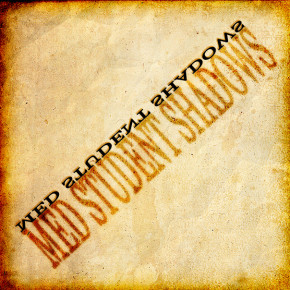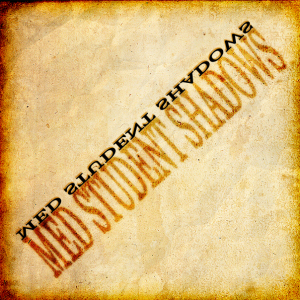 Last spring, I saw my first real patient. The plan was to go into an exam room and take the history and physical of a real patient who had graciously offered to sacrifice half of his day. A doctor would watch everything and give feedback. The intimidating fact that I was being monitored made me feel like I was about to go on stage in front of an audience. If you had followed me into my exam room that spring morning, you probably would have felt very uncomfortable. That’s because I was uncomfortable. That made my patient uncomfortable. There was a lot of discomfort all around.
Last spring, I saw my first real patient. The plan was to go into an exam room and take the history and physical of a real patient who had graciously offered to sacrifice half of his day. A doctor would watch everything and give feedback. The intimidating fact that I was being monitored made me feel like I was about to go on stage in front of an audience. If you had followed me into my exam room that spring morning, you probably would have felt very uncomfortable. That’s because I was uncomfortable. That made my patient uncomfortable. There was a lot of discomfort all around.
Even more nerve-wracking was my feeling that this moment was going to be more important than any written test I could have taken in my first year of medical school. I felt like I was going on that stage to audition for a role in a play, and if I missed the cues or forgot the lines, then I was not a good candidate for the role of physician.
I carried this dense cloud of feelings with me into the exam room. Like poison gas, it made my tongue sluggish and I stammered through a long, redundant history. It obscured my view of my patient’s retina on my fundoscopic exam, and I stared uselessly into his eyes for longer than I should have. The cloud invaded my mind and made me forget my usual order of physical examination; I dove into abdominal palpation before auscultation and frantically fumbled with the stethoscope. Whenever the cloud closed in around me, I stood in front of my patient with hands out in front of me, silently screaming, “What do I do next?!”
My patient was also very tall — whereas I am just under five feet. Forgetting to ask the patient to help me out by bending forward or sitting in a lower chair instead of on the exam table, I spent my physical exam performing a frantic dance around the table, scurrying from the patient’s left to right side and back again, struggling to raise the fundoscope, otoscope and blood pressure cables over his head.
All the while, I kept trying to reassure my patient by explaining to him why I was asking certain questions and doing different parts of the physical exam. This made my exam excessively wordy and long … and probably added to my patient’s sense that he was being interviewed by a nervous wreck.
My preceptor had a long list of comments for me, which he gave to me gently. I appreciated every word of it and went home with a lot to think about and much to lock into my memory.
Is there a happy ending to this story? Honestly, I don’t know — I’m still so far from the end!
It’s only been a year since then, but after seeing patients independently in the hospital, I’ve become much more confident and comfortable. I go into the exam room, reminding myself that the fact that I’m only a medical student is not an evil thing. I don’t have to do everything perfectly. I don’t have to have all the answers. I haven’t even learned all the answers yet! I should just go in, be confident, and make sure the patient knows I am there to listen, to comfort, to help.
I had my last of two observation and feedback sessions a few months ago, to conclude my school’s Advanced Doctoring course (which apparently means I’m now an Advanced Doctor?). I spoke with standardized patients and examined them, then received feedback from them and a physician who watched the whole interaction behind a one-way mirror.
The cloud that had followed me into the exam room last year was now maybe a wisp of smoke. My history and physical was more confident and focused. Without a doubt, I still made mistakes, but the patient told me that I made them feel comfortable, that I was caring and calming, that my stethoscope was warm.
I know I will make a lot of mistakes before medical school is over, and that thinking back on a lot of “first’s” will never cease to make me cringe with retrospective embarrassment. But as long as I hear things like that from patients, I’ll know I’m heading in the right direction. For now, the story of my first patient is a wealth of valuable life lessons, and maybe even some laughs. As long as they’re at my expense, and not the patient’s, I’m fine with that.
As medical students, we shadow physicians to learn about the nature of medicine from them and their patients. In this column, Diem traces her own shadow, preserving and illustrating her experiences—in class, in the hospital, and in between—as a humble medical student.

